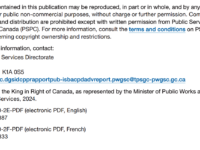The proverbial ink is barely dry on the disastrous Bill C-18, yet the Canadian media lobby has already moved onto the next targets for government funding, grants, and tax reform. The effort, which is seemingly designed to ensure that government funding or regulation cover the entire cost of news, focuses on extending grants, expanding provincial tax credits, and overhauling the tax treatment of ad spending. It has hard to overstate how dangerous these policies have become as the sector’s addiction to government funding and regulation has come at an enormous cost that erodes public trust and created dependence on the very governments the press is supposed to hold to account.
The slippery slope of this government’s funding the media has been ongoing for years: the Local Journalism Initiative offered tens of millions in grant money, the Labour Journalism Tax Credit created a tax credit worth nearly $14,000 per journalist when established that was more than doubled last year on a retroactive basis to nearly $30,000 per journalist, and the Online News Act (Bill C-18) offered the hope (or more accurately illusion) of hundreds of millions more from Google and Meta. On top of the federal money, the Quebec government offers a similar tax credit system that comes close to ensuring that government money and regulation cover the entire cost of news journalists at print and digital publications in the province. And if that were not enough, the CRTC is working through its plan for Bill C-11, which the Canadian Association of Broadcasters hopes will lead to the creation of yet another news fund, with 30% of contributions from Internet streaming services such as Netflix and Disney going to the news divisions of Canadian broadcasters such as Bell and Rogers.
Read more ›











